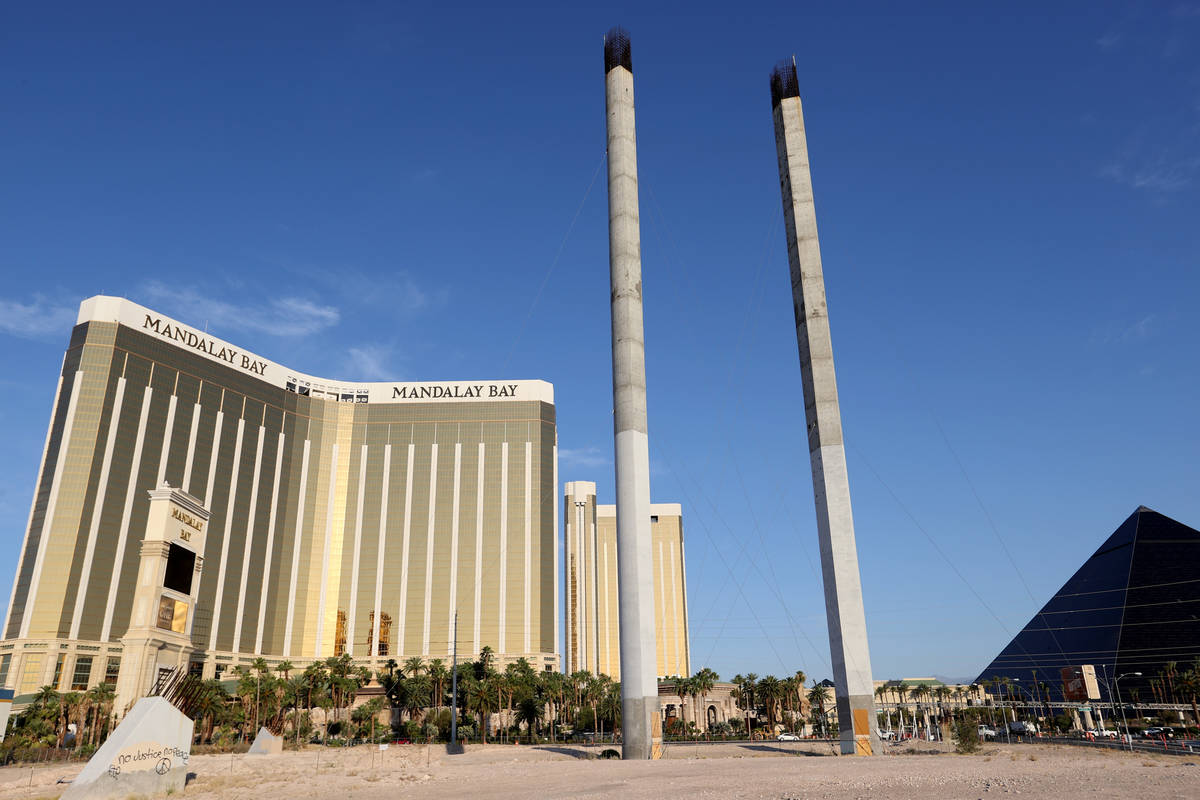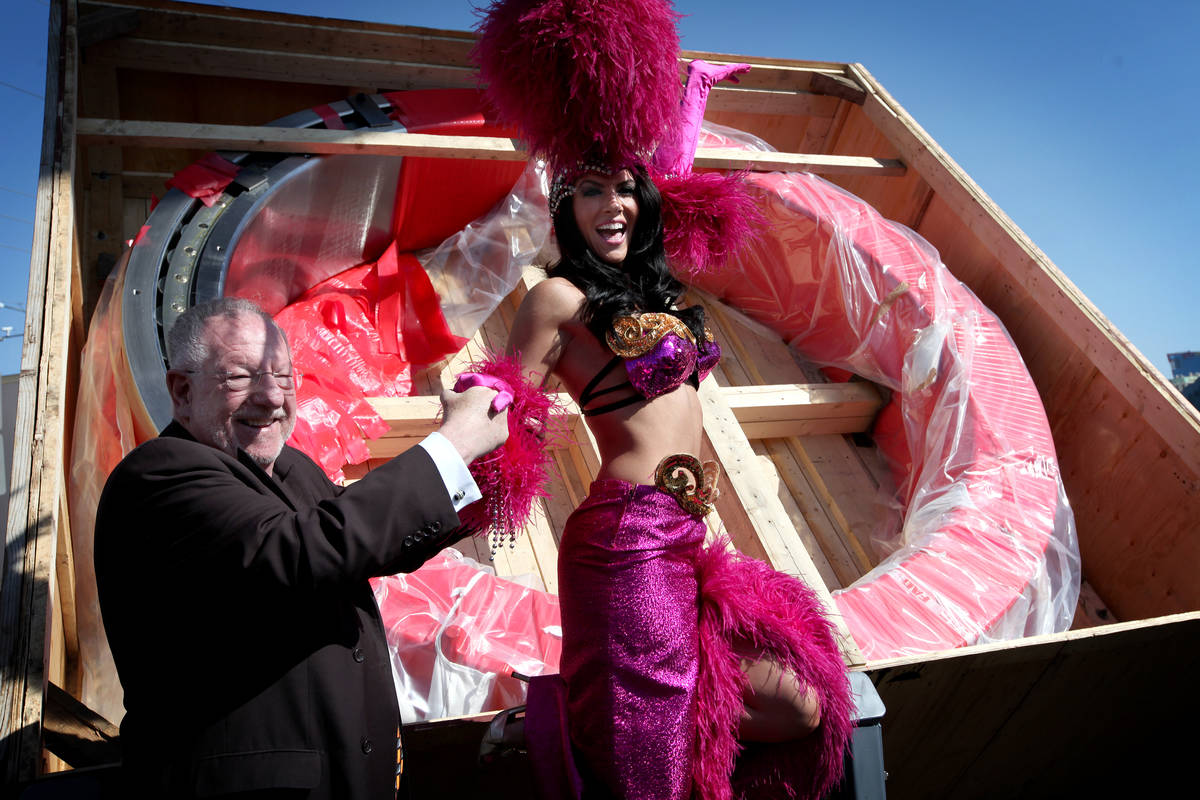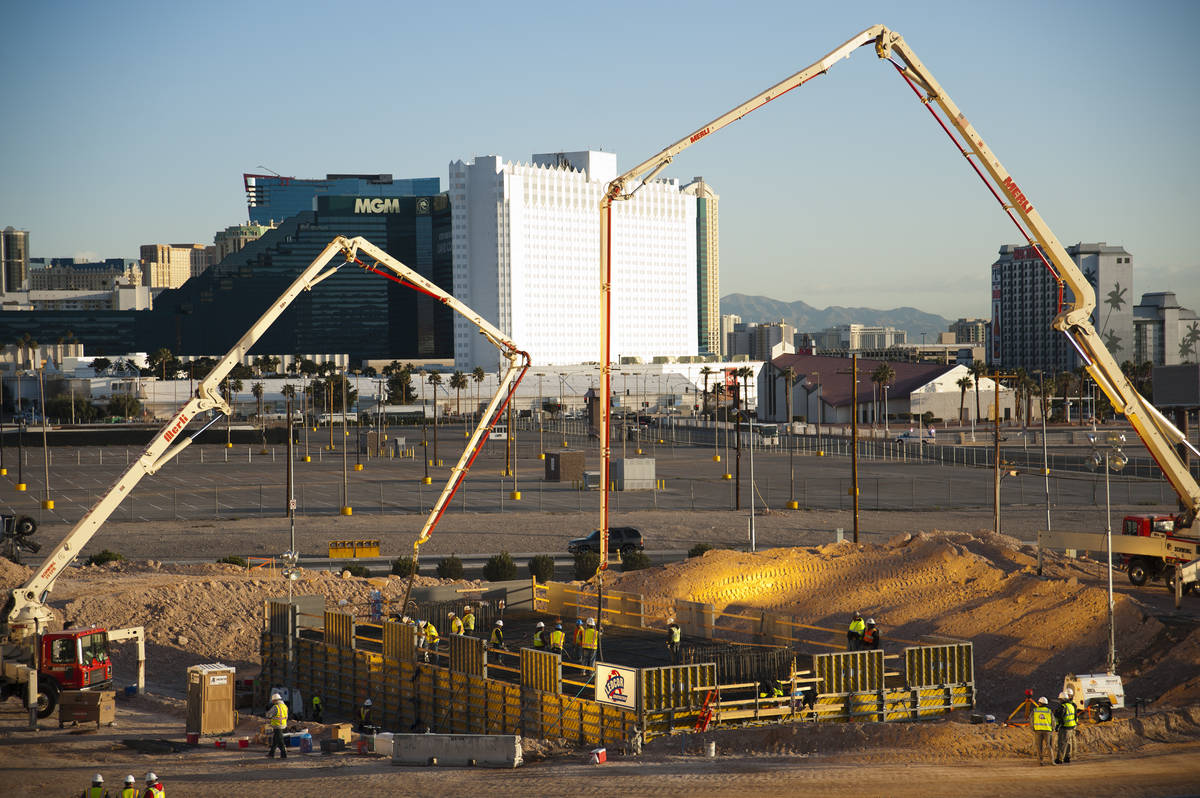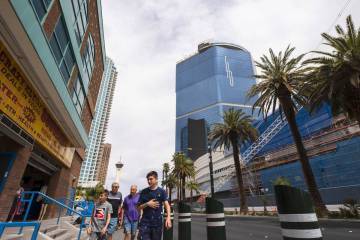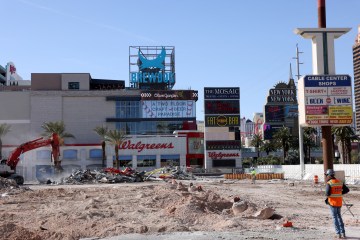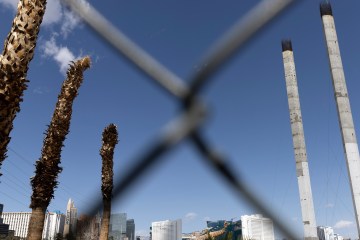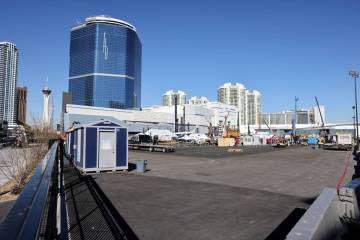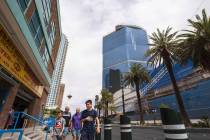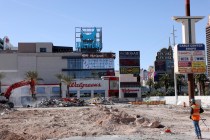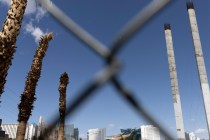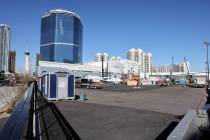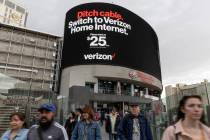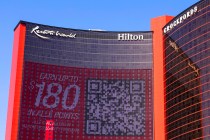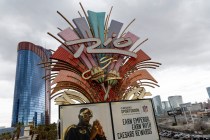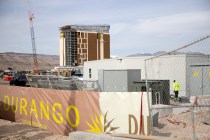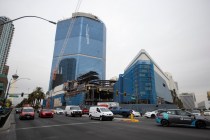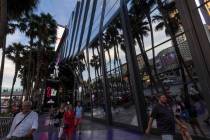No word yet on plans for site of failed SkyVue project
In the fall of 2012, after Wayne Perry sunk a fortune into a stalled Ferris wheel project on the Strip, he had a harsh message for the developers.
The project, SkyVue, was in a “desperate” financial situation, and Perry believed the developers “seem to suffer from the ‘best possible outcome’ syndrome,” he said in an email enclosed in court filings.
“Perception is a precarious thing and SkyVue is in danger of falling to where it would never be able to recover,” he wrote.
Several years later, SkyVue remains an unfinished eyesore across from Mandalay Bay — and Perry is taking ownership.
U.S. Bankruptcy Judge Gary Spraker approved plans July 27 for Perry, a minority partner in the Seattle Mariners baseball team, to acquire the SkyVue site and nearby parcels with a $75 million credit bid, giving him nearly 20 acres along the south Strip, court records show.
Developer Howard Bulloch envisioned SkyVue as a $100 million-plus project with a 500-foot-tall observation wheel, a roller coaster and retail and restaurant space. But the project stalled and has collected dust for years, consisting of little more than two giant concrete columns sticking out of the ground.
It’s unclear what Perry will do with the property, especially now that the coronavirus pandemic has devastated Las Vegas’ tourism-dependent economy. But he was cleared to take over after pumping tens of millions of dollars’ worth of loans, investments and loan purchases into SkyVue, with a chunk of that money coming after construction had stopped, court records show.
Perry, head of Shotgun Creek Investments, did not respond to requests for comment Friday.
Bulloch and partner David Gaffin, operators of Compass Investments, did not respond to a request for comment.
Boy Scouts
Las Vegas’ economy was in shambles in the spring of 2011. Its wild real estate bubble had burst, unemployment was high, and construction had largely ground to a halt, leaving the valley littered with abandoned, partially built projects.
Bulloch, however, had big plans for the south edge of the Strip.
That May, he announced the Skyvue Las Vegas Super Wheel, as it was then called, was “about to get off the ground” and slated to be completed in 2013.
Perry, who has a long background in the telecommunications industry, had met Bulloch while they served as board members of the Boy Scouts of America. A month or so after the spring news release went out, Bulloch explained he was having problems closing a loan for the project because of the “seemingly never-ending requirements and documents” sought by the lender, Perry stated in a court filing.
Perry offered a loan on similar terms, the first of many cash injections he made in the project.
Funding ‘dried up’
Bulloch’s group announced in May 2012 that SkyVue was “rapidly taking shape” and had finished the first phase of construction. Within months, however, construction had stopped.
Its planned Wall Street financing was delayed, construction funds “had dried up,” and several contractors had placed liens on the property and “were owed substantial sums,” Perry’s court filing said.
Still, he kept pumping money into the project. According to his court filing, Perry loaned more than $16 million between 2013 and 2016.
Ultimately, the SkyVue site and other nearby parcels owned by Bulloch and Gaffin, comprising 38.5 acres total, came up for sale this year through bankruptcy court. It was offered in whole or in pieces.
SkyVue was the most high-profile piece of the holdings, and, according to Colliers International broker Mike Mixer, who worked on the auction, several bidders looked to buy the entire spread.
But it was The Oasis apartment complex just east of the Strip, purchased by a Los Angeles investor for $15.6 million, that generated the strongest interest, Mixer indicated.
“That brought the most attention,” he said.
Contact Eli Segall at esegall@reviewjournal.com or 702-383-0342. Follow @eli_segall on Twitter.



